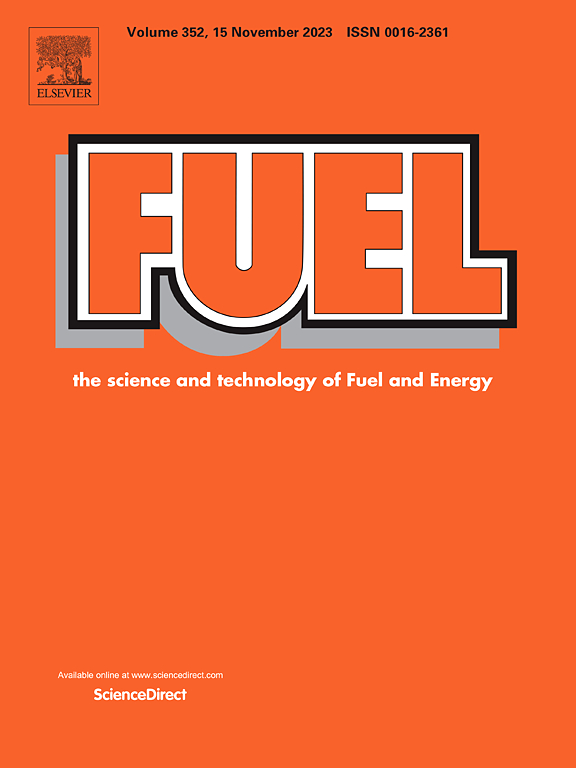含冷却液加热的甲醇发动机在243 K环境温度下冷启动的数值研究
IF 7.5
1区 工程技术
Q2 ENERGY & FUELS
引用次数: 0
摘要
冷启动时失火限制了甲醇发动机的应用。本研究提出了一种冷却剂加热的方法来建立合适的点火条件。在水冷式火花点火甲醇发动机上进行了数值模拟,研究了冷启动过程中甲醇的分布、性能和排放。结果表明,高温冷却剂能以较高的热流密度向筒体传递热量,提供适合火焰形成和传播的甲醇-空气混合物。冷却剂加热使甲醇发动机在冷却剂工作温度范围内的环境温度为243k时启动。主要排放物是HC和CO,氮氧化物和煤烟的排放量很少。随着冷却液温度的升高,由于气缸温度的升高和混合物的丰富,发动机表现出气缸压力的增加和点火延迟的缩短。NOx、CO和SOOT排放量增加,HC排放量减少。考虑到需要高温发动机冷却液,这种加热方式更适合混合动力汽车。本文章由计算机程序翻译,如有差异,请以英文原文为准。
Numerical study of a cold start at the ambient temperature of 243 K on methanol engine with coolant heating
Misfire during cold starts limits the application of methanol engines. This study proposes a coolant heating method to establish suitable conditions for ignition. Numerical simulations were conducted on a water-cooled, spark-ignition methanol engine to investigate methanol distribution, performance and emissions during cold starts. The results indicate that high-temperature coolant can transfer heat into the cylinder at a high heat flux, providing a methanol-air mixture suitable for flame formation and propagation. Coolant heating enables the methanol engine to start at the ambient temperature of 243 K within the coolant operational temperature range. The main emissions are HC and CO, with minimal emissions of NOx and soot. As the coolant temperature increases, the engine exhibits an increased cylinder pressure and a shorter ignition delay due to the increased cylinder temperature and richer mixture. NOx, CO, and SOOT emissions increase while HC emission decreases. Considering the high temperature engine coolant required, this heating method is more suitable for hybrid vehicles.
求助全文
通过发布文献求助,成功后即可免费获取论文全文。
去求助
来源期刊

Fuel
工程技术-工程:化工
CiteScore
12.80
自引率
20.30%
发文量
3506
审稿时长
64 days
期刊介绍:
The exploration of energy sources remains a critical matter of study. For the past nine decades, fuel has consistently held the forefront in primary research efforts within the field of energy science. This area of investigation encompasses a wide range of subjects, with a particular emphasis on emerging concerns like environmental factors and pollution.
 求助内容:
求助内容: 应助结果提醒方式:
应助结果提醒方式:


